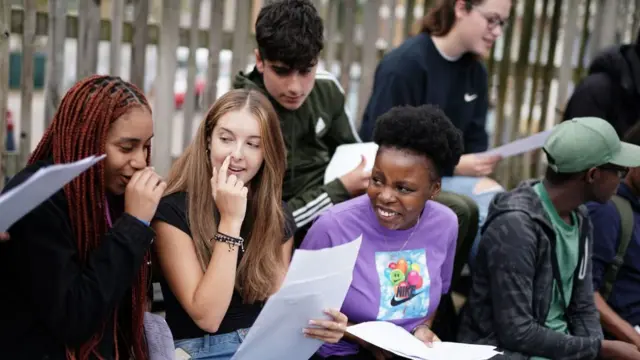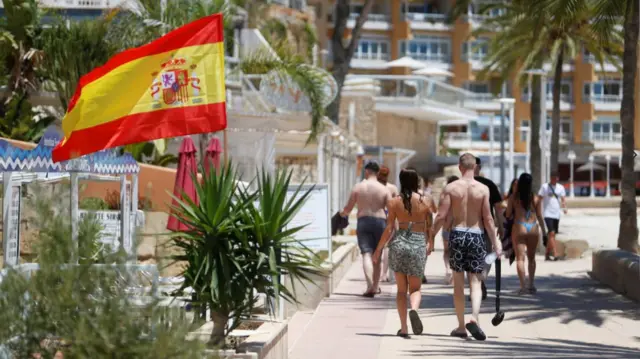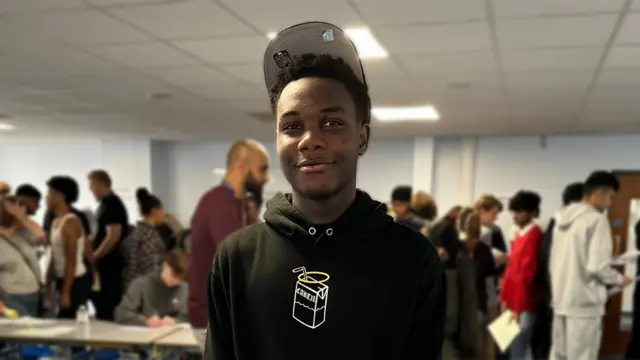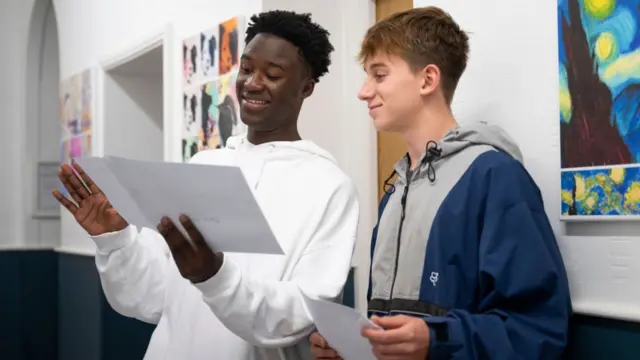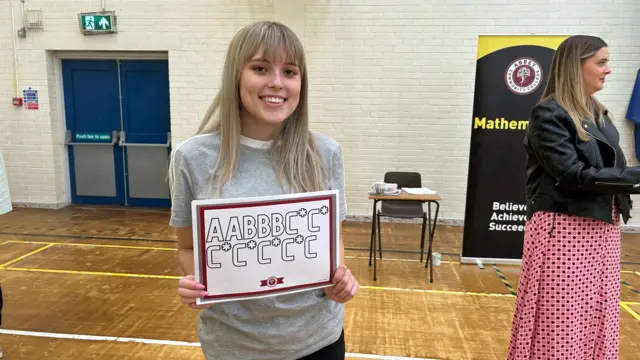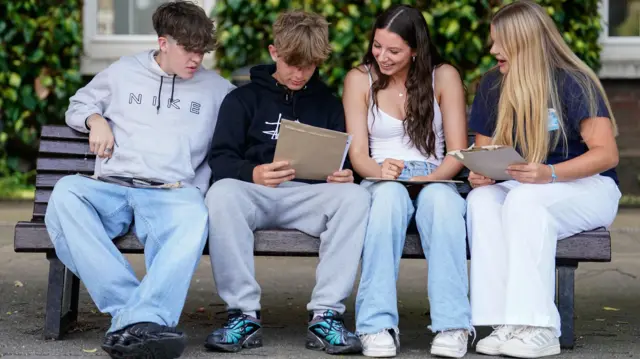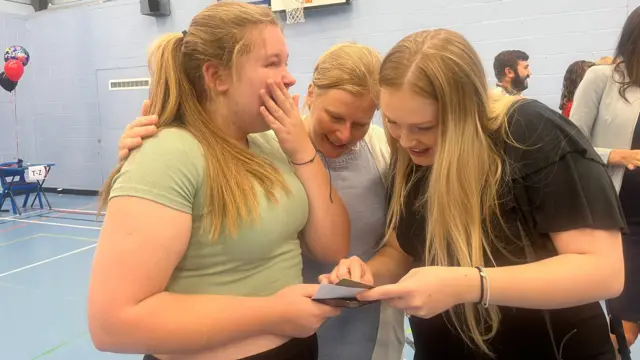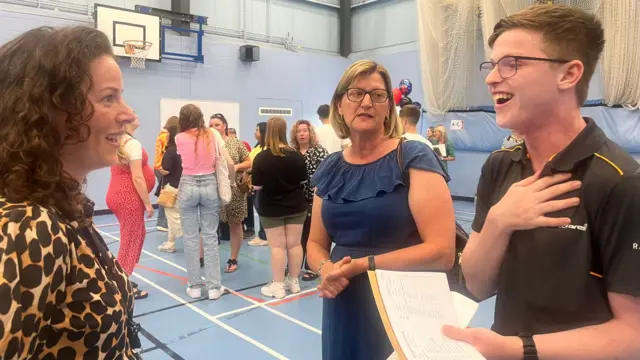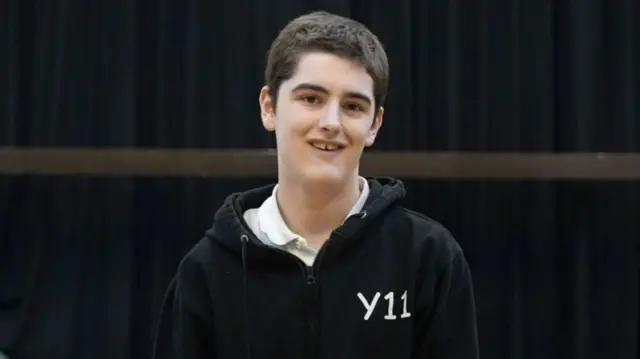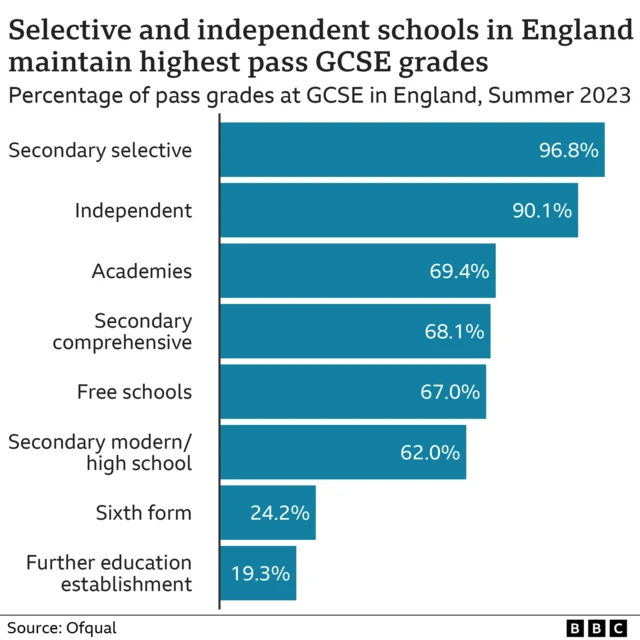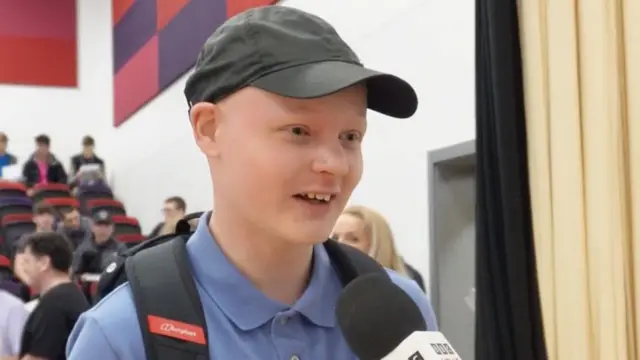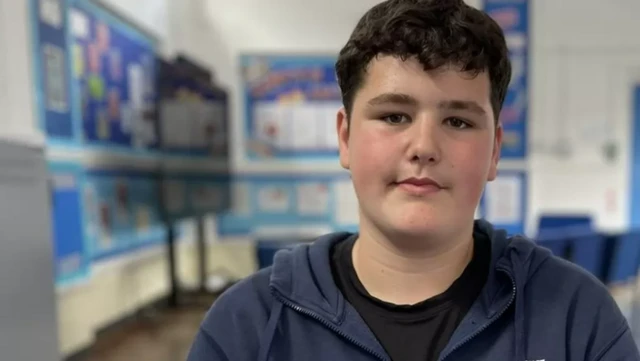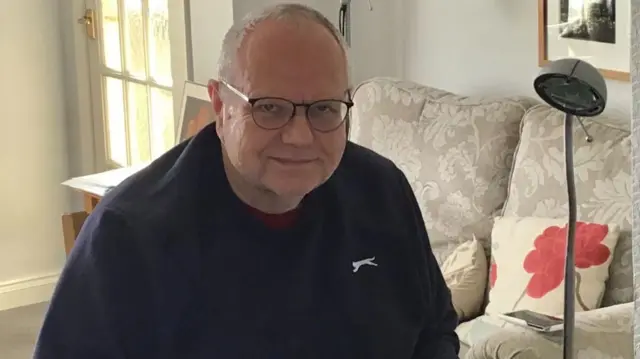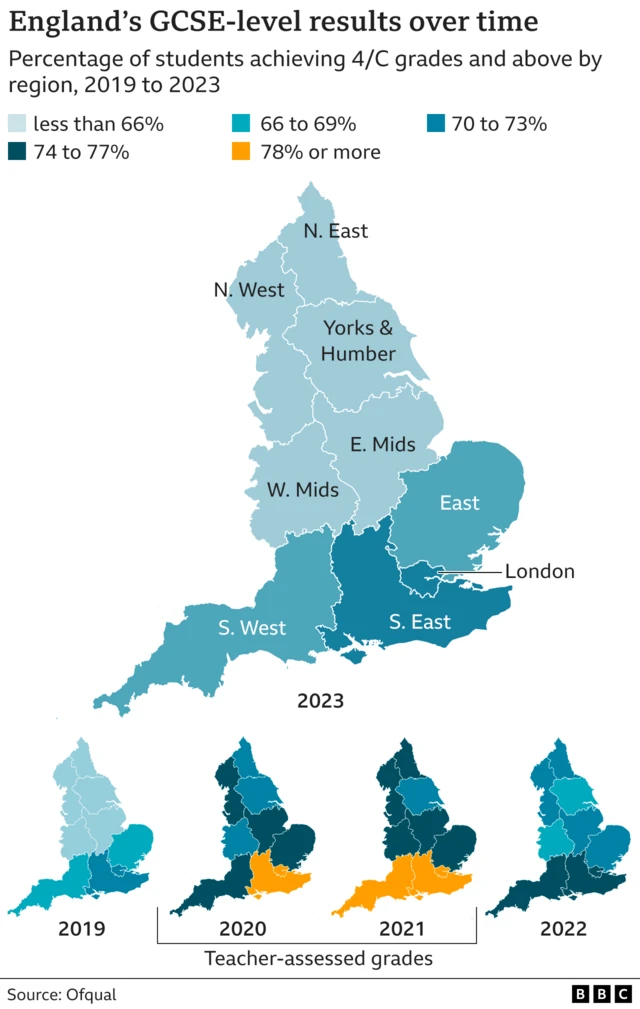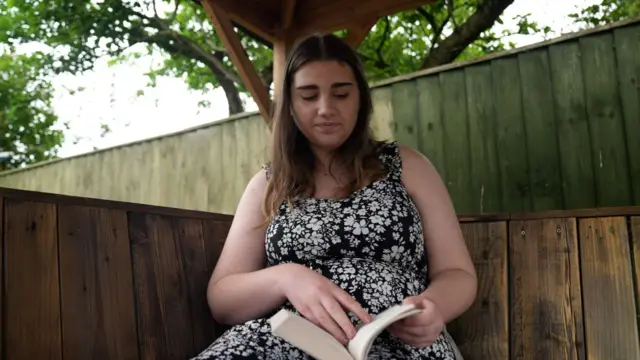A big well done from uspublished at 16:25 BST 24 August 2023
We're wrapping up our live coverage of results day for GCSE and other Level 2 students.
Well done to all of you who got your results today. You can read the round-up of today's news here, and if you're after more content from us, we've got plenty:
- Here's the heart-warming moment a nine-year-old boy in Sheffield finds out his GCSE maths result
- If you didn't quite get the grades you wanted, read this inspirational tale from a shark scientist who left school with three GCSEs
- Not into sharks? Here are more success stories from young people who didn't get the grades they wanted
- And for information on appeals, resits, grade boundaries and more, here's our full guide to results day
Today's live coverage was produced by Alice Evans, Sam Hancock, Adam Durbin, Nathan Standley, Rahib Khan, Hazel Shearing, Liv McMahon and Jamie Moreland.
From all of us here, congratulations, and good luck with your next steps.
